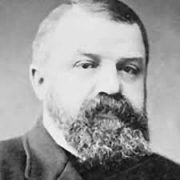Truth and Godliness, in One Accord
/0 Comments/in Weekly Devotional/by David GuzikPaul, a bondservant of God and an apostle of Jesus Christ, according to the faith of God’s elect and the acknowledgment of the truth which accords with godliness. (Titus 1:1)
The Apostle Paul had many associates and co-workers. One of them was a younger man named Titus. They worked together spreading the good news of Jesus Christ and establishing churches among the believers on the island of Crete.

The day came when Paul had to leave, and Titus was left behind to continue a difficult work. Paul wanted to instruct and encourage his young co-worker, so he wrote this letter to him. Inspired by the Holy Spirit, this letter was not only helpful for Titus, but also for God’s people through all ages.
Because this writing was inspired by the Holy Spirit and rightfully including among the writings of the New Testament, each word and phrase has depth and meaning. We can learn from both its broad themes and individual words and phrases. The first line of the letter – Titus 1:1 – is a good example of how, under the inspiration of the Holy Spirit, so much can go into a few words.
First, we see how Paul referred to himself: both a bondservant of God and an apostle of Jesus Christ. It is hard to think of a lower title than bondservant. The original word speaks not only of a low slave (one Greek scholar called it “the most abject, servile term in use among the Greeks for a slave”), it was also the word for a slave by choice. Paul took glory in such a humble title – he was a willing servant, a slave, of God. Yet he was also an apostle, a uniquely designated ambassador of God, one of those commissioned by God to lay that one-time foundation of the church (Ephesians 2:20).
Paul said that his calling as a bondservant and an apostle was according to the faith of God’s elect and the acknowledgment of the truth. His calling wasn’t because of the faith of God’s elect, but in harmony with the faith (the belief, the truth) shared among God’s elect. One way we can know who the elect are is that they make this acknowledgment of the truth – they believe and confess the truth about who Jesus is and what He came to do for us, especially His work on the cross.
There is at least one more important thought in this verse. Paul was careful to write that the truth acknowledged by God’s elect accords with godliness. It is consistent with godly, moral life. An ungodly life, marked by sin and moral compromise, doesn’t really acknowledge the truth of God.
This truth brings us to one of the big themes of Paul’s letter to Titus: the link between sound doctrine and godly living. Truth and godliness should always be in one accord. From time to time we need to do the self-assessment: Do I believe the truth, especially about Jesus and His work for me? Do I walk in godliness, consistent with the truth and nature of God? We must always remember that both are important, and there is a real connection between right belief and right living.
Wie ein schlechter Pfannkuchen
/0 Comments/in Wöchentliche Andacht/by David GuzikEphraim hat sich mit anderen Völkern vermischt; Ephraim ist wie ein Kuchen, den man nicht umgewendet hat. Fremde haben seine Kraft verzehrt, und er erkennt es nicht; sein Haupthaar ist mir Grau gesprenkelt, und er erkennt es nicht. Wiewohl aber Israels Stolz sich als Zeuge gegen ihn erhebt, sind sie doch nicht zu dem HERRN, ihrem Gott, umgekehrt und haben ihn trotz allem nicht gesucht. (Hosea 7,8-10)
Gott liebt es, in Bildern zu reden. Durch die ganze Bibel gebraucht Gott Wortbilder, um uns mitzuteilen, wie Er die Dinge sieht. Hosea 7 ist voll von solchen Wortbildern, die den sündhaften Charakter von Israel zur Zeit Hoseas zu beschreiben. In diesem Kapitel sagt Gott, Israel sei wie:
- Ein Dieb, eine Bande Räuber
- Eine ehebrechende Frau
- Ein heißer Ofen
- Eine einfältige Taube
Doch mein liebstes Wortbild aus Hosea 7 findet sich in den Versen 8 bis 10, wo Gott Israel einen Kuchen, den man nicht gewendet hat, nennt. Damit meint er einen nur „halb gebackenen“ Kuchen. Zu jener Zeit wurde Brot oft wie ein Kuchen zubereitet, der auf beiden Seiten gebacken wurde, so wie ein Pfannkuchen. Wenn Israel dachte, sie könnten sowohl dem Herrn als auch den Götzen dienen, waren sie wie ein nicht gewendeter Pfannkuchen – auf der einen Seite verbrannt und auf der anderen roh.

Das beschreibt genau den geistlichen und moralischen Zustand vieler Menschen. Sie sind vielen Dingen zu sehr ausgesetzt – vielleicht Dingen der Welt, des Fleisches und des Teufels. Doch anderen Dingen sind sie zu wenig ausgesetzt – den Dingen Gottes und des Heiligen Geistes. Darum sind sie wie ein Kuchen, den man nicht umgewendet hat. Wenn du schon einmal Pfannkuchen gemacht hast, weißt du, was man mit denen macht, die auf der einen Seite verbrannt und auf der anderen Seite roh sind – nichts. Du kannst das nicht in Ordnung bringen, indem du ihn drehst, denn die eine Seite ist immer noch verbrannt. Auf dieselbe Art kann Gott nicht viel mit einer Person machen, die zu sehr der Welt und zu wenig Gott ausgesetzt war.
Um diesen Selbstbetrug Israels zu beschreiben gebraucht Hosea ein weiteres Bild: „Sein Haupthaar ist mit Grau gesprenkelt, und er erkennt es nicht.“ Israel war wie ein alter Mann, der sich noch für jung hält und sich so verhält. Wir finden es lächerlich, wenn ein alter, grauhaariger Mann die modernste Kleidung trägt und die Umgangssprache junger Leute gebraucht. Wir fragen uns: „Wen glaubt der alte Mann täuschen zu können?“ Gott denkt dasselbe über uns, wenn wir uns selbst über unseren geistlichen Zustand etwas vormachen.
Wenn man bedenkt, wie leicht wir uns selbst betrügen und die Sünde für jeden offensichtlich ist, außer für uns, war Israels Zustand nicht ungewöhnlich. Nachdem Delila Simsons Haar abgeschnitten hat, lesen wir in Richter 16,20: „Er wusste aber nicht, dass der HERR von ihm gewichen war.“ Genau an diesen Punkt war das Volk Israel damals und sind es auch viele Menschen heute. Sie sind weit weg von Gott und leiden schon an den Folgen, aber sie können es nicht erkennen. Bitte Gott heute, deine Augen zu öffnen – nicht nur, dass du Ihn sehen kannst, sondern auch deinen echten geistlichen Zustand. Beides klar zu sehen ist der Weg zu echter geistlicher Gesundheit.
Like a Bad Pancake
/0 Comments/in Weekly Devotional/by David GuzikFollow me on Twitter: @EnduringWordCom
Ephraim has mixed himself among the peoples; Ephraim is a cake unturned. Aliens have devoured his strength, but he does not know it; yes, gray hairs are here and there on him, yet he does not know it. And the pride of Israel testifies to his face, but they do not return to the Lord their God, nor seek Him for all this. (Hosea 7:8-10)
God likes to talk in pictures. All through the Bible, God uses word-pictures to tell us how He sees things. Hosea chapter 7 is filled with word pictures describing the sinful character of ancient Israel in the days of the Prophet Hosea. In this chapter, God says Israel was like:
– A thief, a band of robbers
– An adulterous wife
– A hot oven
– A silly dove
But my favorite word-picture from Hosea 7 is found in verse 8 through 10, where God called Israel a cake unturned. The idea is of a “half-baked” cake. In that day, bread was often prepared as a cake that was cooked on both sides, something like a pancake. In thinking they could serve both the Lord and idols, Israel was like an unturned pancake – burned on one side and uncooked on the other.

This vividly describes the spiritual and moral condition of many people. They are overexposed to some things – perhaps the things of the world, the flesh, and the devil. Yet they are underexposed to other things – the things of God and His Spirit. Therefore, they are like a cake unturned. If you have ever made pancakes, you know what can be done with cakes that are burned on one side and uncooked on the other – nothing. You can’t fix it by flipping it over, because the one side is still burned. In the same way, when someone is overexposed to the world and underexposed to God, God can’t do much with that person.
To describe the self-deception of Israel, Hosea used another word-picture: “Yes, gray hairs are here and there on him, yet he does not know it.” In Hosea’s day, Israel was as foolish as an old man who thought and acted like he was still young. If you have ever seen the type, you know what Hosea meant. We think it is a joke when an old, gray-headed man dresses in the most modern fashions and uses the slang of young people. We wonder, “Who does this old guy think he is fooling?” God thinks the same thing about us when we deceive ourselves about our spiritual condition.
Considering how easily we deceive our self, and how our sin can be apparent to everyone but us, Israel’s condition wasn’t unusual. It was said of Samson after Delilah cut his hair: “But he did not know that the Lord had departed from him” (Judges 16:20). This is where the people of Israel were and where some followers of God are today. They are far from God and already suffering the effects, but they can’t see it. Ask God to open your eyes today – not only to see Him, but also to see your true spiritual condition. Seeing both clearly make the path to true spiritual health.
Ein König wie Jesus – und Seine Helfer
/0 Comments/in Wöchentliche Andacht/by David GuzikSiehe, ein König wird in Gerechtigkeit regieren, und Fürsten werden gemäß dem Recht herrschen. (Jesaja 32,1)
Es ist eine wunderbare Verheißung: Siehe, ein König wird in Gerechtigkeit regieren. Doch es wichtig dabei zu bedenken, dass der Prophet Jesaja diese Verheißung in einem bestimmten Zusammenhang machte. Im vorigen Kapitel versicherte Gott den Herrschern und dem Volk, dass die Assyrer gerichtet würden und Juda errettet würde. Doch Gott wollte nicht nur die Bedrohung beseitigen; Er wollte Juda auch mit einem gerechten König segnen. Darum wurde diese Verheißung gemacht.

Das Königreich Juda hatte einige schlechte Könige gehabt, also war das eine tolle Verheißung: ein König wird in Gerechtigkeit regieren. Auf bestimmte Weise erfüllte König Hiskia diese Prophezeiung. Über ihn lesen wir: „Und er tat, was recht war in den Augen des HERRN, ganz wie es sein Vater David getan hatte. . . Er vertraute dem HERRN, dem Gott Israels, dass unter allen Königen von Juda keiner seinesgleichen war. Er hing dem HERRN an, wich nicht von ihm ab und befolgte die Gebote, die der HERR dem Mose geboten hatte (2. Könige 18,3 und 18,5-6). Das beschreibt wirklich einen König, der in Gerechtigkeit regiert.
Doch wenn wir die Worte lesen ein König wird in Gerechtigkeit regieren, erkennen wir, dass Hiskia letztendlich ein Bild für den König der Könige, Jesus Christus, war. Jeremia 23,5 sagt folgendes über den Messias. „Siehe, es kommen Tage, spricht der Herr, da werde ich dem David einen gerechten Spross erwecken; der wird als König regieren und weise handeln und wird Recht und Gerechtigkeit schaffen auf Erden.“
Diese Verheißung mag sich also wirklich auf Hiskia und seine gottgefällige und erfolgreiche Regierung beziehen. Doch Hiskia und seine Regierung waren auch ein Bild für Jesus und Sein letztendliches Königreich. Man kann es wie der puritanische Schriftsteller Matthew Poole sagen: „Diese Prophezeiung schaut durch Hiskia auf Jesus.“
Die Verheißung hat auch noch einen zweiten Teil: und Fürsten werden gemäß dem Recht herrschen. Es war nicht genug – und das ist es nie – einen gerechten König zu haben. Der König braucht Helfer (hier Fürsten genannt) neben sich, die auch in Gerechtigkeit regieren. Hiskia hatte solch loyale Fürsten, wie Eljakim, Schebna, den Schreiber und die Ältesten der Priester (wie in 2. Könige 19,2 beschrieben wird).
Diese Männer waren keine Fürsten im eigentlichen Sinn oder Söhne von Hiskia. Das Wort, das hier mit Fürsten übersetzt ist, bedeutet jede Art von Herrscher unter einem König; einfach jemand, der dem König hilft und Seine Befehle ausführt.
Denk mal kurz darüber nach. Wenn Hiskia, der gerechte König, auf Jesus hinweist, wer sind dann Jesu Fürsten? Seine Kinder sind diese Fürsten! Lies 1. Petrus 2,9 sorgfältig: „Ihr aber seid ein auserwähltes Geschlecht, ein königliches Priestertum, ein heiliges Volk, ein Volk des Eigentums, damit ihr die Tugenden dessen verkündet, der euch aus der Finsternis berufen hat zu seinem wunderbaren Licht.“ Oder auch Offenbarung 5,10: „und hast uns zu Königen und Priestern gemacht für unseren Gott, und wir werden herrschen auf Erden.“
Dies ist ein hohes und herrliches Schicksal, das Gott für Seine Kinder in den kommenden Zeitaltern bereit hält. Ein so hohes und herrliches Schicksal braucht Vorbereitung. Wir sollten uns jetzt um Treue und Gerechtigkeit bemühen; nicht nur für den Moment, sondern auch weil eben dieser Moment eine wunderbaren Absicht für die Welt danach bedeutet. Wir befinden uns im Training, um Fürsten zu werden, die treu mit Jesus regieren. Wir können über dieses Schicksal nachdenken und Gott dafür danken wie Er uns darauf vorbereitet.
A King Like Jesus – and His Helpers
/0 Comments/in Weekly Devotional/by David GuzikFollow me on Twitter: @EnduringWordCom
Behold, a king will reign in righteousness, and princes will rule with justice. (Isaiah 32:1)
It is a wonderful promise: Behold, a king will reign in righteousness. Yet it is important to remember that Isaiah the prophet made this promise in a certain context. In the previous chapter, God assured the rulers and people that the Assyrians would be judged and Judah would be delivered. But God didn’t want only to remove the threat; He also wanted to bless Judah with a righteous king. Therefore this promise was made.

The kingdom of Judah had endured bad kings, so it was a great promise: A king will reign in righteousness. In some sense, King Hezekiah fulfilled this prophecy. It was written of him: “And he did what was right in the sight of the Lord, according to all that his father David had done… He trusted in the Lord God of Israel, so that after him was none like him among all the kings of Judah, nor any who were before him. For he held fast to the Lord; he did not depart from following Him, but kept His commandments, which the Lord had commanded Moses” (2 Kings 18:3, 5-6). That certainly describes a king who reigns in righteousness.
Yet when we read the words, a king will reign in righteousness we also recognize that ultimately Hezekiah was a picture of the King of Kings, Jesus Christ. Jeremiah 23:5 announced this about our Messiah: “Behold, the days are coming,” says the Lord, “That I will raise to David a Branch of righteousness; a King shall reign and prosper, and execute judgment and righteousness in the earth.”
So this promise may well have had its original reference to Hezekiah and the godliness and success of his reign. Nevertheless, Hezekiah and his reign was in some ways a picture of Jesus and His ultimate kingdom. We can say with the Puritan writer Matthew Poole, “So this prophecy looks through Hezekiah unto Christ.”
We also notice the second part of the promise: and princes will rule with justice. It wasn’t enough – and it is never enough – to have a righteous king. The king must have helpers (here called princes) beside him, who will also rule with justice. Hezekiah had such loyal princes, such as Eliakim, Shebna the scribe, the elders of the priests, and Isaiah himself (as described in 2 Kings 19:2).
These men were not princes in the literal sense of being sons of King Hezekiah. The Hebrew word for princes can mean any ruler under a king; simply, someone who helps the king and carries out His orders under His authority.
Think about it for a moment. If Hezekiah, the righteous king, points to Jesus, then who are Jesus’ princes? We can say that His people are His princes and princesses! Read carefully 1 Peter 2:9: “But you are a chosen generation, a royal priesthood, a holy nation, His own special people, that you may proclaim the praises of Him who called you out of darkness into His marvelous light.” Or again at Revelation 5:10: “And have made us kings and priests to our God; and we shall reign on the earth.”
This is a high and glorious destiny that God has for His people in ages to come. Such a high and glorious destiny needs a special preparation. We should care about faithfulness and justice right now; not only for the moment, but also because the present moment has a wonderful purpose in the world beyond. We are in training to be “princes,” faithfully ruling with King Jesus. We can think about this destiny, and thank God for how He prepares us for it.
Ein erfolgreicher Fehler
/0 Comments/in Wöchentliche Andacht/by David GuzikIm achtzehnten Jahr der Regierung des Königs Jerobeam, des Sohnes Nebats, wurde Abija König über Juda. Er regierte drei Jahre lang in Jerusalem. Der Name seiner Mutter war Maacha, eine Tochter Abisaloms. Und er wandelte in allen Sünden seines Vaters, die dieser vor ihm getan hatte, und sein Herz war nicht ungeteilt mit dem HERRN, seinem Gott, wie das Herz seines Vaters David. (1. Könige 15,1-3)
Die Linie der Könige von Israel begann mit Saul, aber er disqualifizierte sich selbst und so endete die Dynastie Sauls mit Saul – er war eine Ein-König-Dynastie. Dann kam David, der vielleicht der größte König von Israel war. Als nächstes kam Salomo, Davids Sohn, der den herrlichen Tempel baute.

Doch nach Salomo folgt ein Desaster namens Rehobeam. Er ließ das Königreich in Fleischeslust und einen Bürgerkrieg versinken, und durch die Teilung der zwölf Stämme Israels gab es nun zwei Königreiche. Der König, der in 1. Könige 15,1-3 beschrieben wird, war der Sohn Rehobeams, und er saß auf dem Thron des Südreichs, das Juda genannt wurde. Darum lesen wir: Abija wurde König über Juda. Dieser Sohn Rehobeams regierte nur drei Jahre – Gott hat seine Regierung nicht gesegnet.
Wenn wir dies mit 2. Chronik 13 vergleichen, sehen wir, dass Abija etwas vom Herrn wusste, und er konnte predigen – doch er behielt den Götzendienst und die sexuelle Unmoral bei, die Rehobeam eingeführt hatte. Der Nachfolger Abijas (Asa) ließ die Zentren der sexuell motivierten Götzendienste entfernen, die damals überall üblich waren (1. Könige 15,12-13).
„Sein Herz war nicht ungeteilt mit dem HERRN, seinem Gott, wie das Herz seines Vaters David.“ Das war das eigentliche Problem mit Abijas Regierung – er hatte keine echte Beziehung zu Gott. König David sündigte während seiner Regierungszeit, doch sein Herz blieb ungeteilt mit dem Herrn, seinem Gott. Das konnte man von Abija nicht sagen.
- Chronik 13 erzählt noch mehr interessante Details über Abijas Regierung. Es gab einen Krieg zwischen Jerobeam von Israel und Abija von Juda, und Abija forderte Jerobeam auf der Basis der Gerechtigkeit und Treue gegenüber Gott heraus. Jerobeam reagierte mit einem Überraschungsangriff, und es schien, als sei der Sieg Israels über Juda gewiss – doch Abija schrie zum Herrn, und Gott siegte für Juda an jenem Tag. 2. Chronik 13,18 sagt über diesen Krieg: „So wurden die Kinder Israels zu jener Zeit gedemütigt, aber die Kinder Judas wurden gestärkt; denn sie verließen sich auf den HERRN, den Gott ihrer Väter.“ Gott segnete Abijas Regierung, auch wenn er es nicht verdiente.
Doch die Chroniken erzählen uns auch vom Ende seiner kurzen Regierungszeit: „Abija aber erstarkte, und er nahm 14 Frauen und zeugte 22 Söhne und 16 Töchter“ (2. Chronik 13,21). Inmitten seines Sieges und seiner gutern Führung von Juda, hatte er niemals eine Beziehung zum Herrn.
Man kann sagen, dass Abija ein klassisches Beispiel für etwas ist, das heute immer mehr zunimmt: der erfolgreiche Fehler. Er war erfolgreich und versagte gleichzeitig. Er stieg die Erfolgsleiter bis nach ganz oben – nur um dann herauszufinden, dass die Leiter am falschen Gebäude lehnte. Abija glaubte, das Wichtigste im Leben sei es, ein guter König zu sein; doch er übersah das Wichtigste: sein persönliches Leben mit Gott. Mach nicht denselben Fehler in deinem Leben.
The Successful Failure
/0 Comments/in Weekly Devotional/by David GuzikFollow me on Twitter: @EnduringWordCom
“In the eighteenth year of King Jeroboam the son of Nebat, Abijam became king over Judah. He reigned three years in Jerusalem. His mother’s name was Maachah the granddaughter of Abishalom. And he walked in all the sins of his father, which he had done before him; his heart was not loyal to the Lord his God, as was the heart of his father David.” (1 Kings 15:1-3)
The line of kings over Israel began with Saul, but he disqualified himself, so the dynasty of Saul ended with Saul – he was a one-king-dynasty. Then came David, who was perhaps Israel’s greatest ancient king. Next was Solomon, the son of David and the one who built the glorious temple.

Yet after Solomon came a disaster in the name of Rehoboam. He sunk the kingdom into carnality and civil war, and because of the division soon there were two kingdoms from the twelve tribes of Israel. The king described in 1 Kings 15:1-3 was the son of Rehoboam and he sat on the throne of the southern kingdom, called Judah. That is why we read “Abijam became king over Judah.” This son of Rehoboam only reigned three years, showing that God did not bless his reign.
From the comparing this account with 2 Chronicles 13 we learn that Abijam knew something of the Lord, and he knew how to preach – but he did not uproot the idolatry and sexual immorality that was introduced by Rehoboam. The successor of Abijam (Asa) removed the centers of the sexually-charged idolatry that were so common in the land (1 Kings 15:12-13).
“His heart was not loyal to the Lord his God, as was the heart of his father David.” This was the real problem with Abijam’s reign – his lack of a real life or relationship with God. King David sinned during his reign, but his heart stayed “loyal to the Lord his God.” The same could not be said of Abijam.
2 Chronicles 13 fills in more interesting details about the reign of Abijam (called Abijah in 2 Chronicles). It tells us how there was war between Jeroboam of Israel and Abijam of Judah, and how Abijam challenged Jeroboam on the basis of righteousness and faithfulness to God. Jeroboam responded with a surprise attack, and victory seemed certain for Israel over Judah – but Abjiam cried out to the Lord, and God won a victory for Judah that day. 2 Chronicles 13:18 says of that war, “Thus the children of Israel were subdued at that time; and the children of Judah prevailed, because they relied on the Lord God of their fathers.” God blessed Abijam’s reign even when it seemed that he didn’t deserve it.
Yet Chronicles also tells us his standing at the end of his brief reign: “But Abijah grew mighty, married fourteen wives, and begot twenty-two sons and sixteen daughters” (2 Chronicles 13:21). In the midst of his victory and good leadership for Judah, he never had the relationship with the Lord he should have had.
We could say that Abijam is a classic example of something more and more common today: the successful failure. He both succeeded and failed at the same time. You might say that he climbed the ladder of success and got to the top – only to find that that ladder leaned against the wrong building. Abijam thought that the most important thing in life was being a good king; he missed what really mattered most: his personal life with God. Don’t make the same mistake in your own life.
Nicht beschämt bei seiner Wiederkunft
/0 Comments/in Wöchentliche Andacht/by David Guzik„Und nun Kinder, bleibt in ihm, damit wir Freudigkeit haben, wenn er erscheint, und uns nicht schämen müssen vor ihm bei seiner Wiederkunft.“ (1. Johannes 2,28)
Bist du jemals irgendwo angekommen und warst total enttäuscht?

Ein Polizist in Connecticut bemerkte ein Auto, das zu schnell unterwegs war und auf die Beschreibung eines Fluchtautos bei einem Raubüberfall passte. Er verfolgte das Auto, das daraufhin falsch abbog, und zwar zum MacDougall Correctional Institut, einem Hochsicherheitsgefängnis. Der Mann sprang aus seinem Auto und lief direkt in das Büro. „Ich glaube, er dachte, es sei ein Einkaufszentrum,“ sagt der Polizist. „Aber ich hab noch nicht viele Einkaufszentren mit Stacheldraht drumherum gesehen.“
In 1. Johannes 2,28 präsentiert Johannes uns einen herausfordernden Gedanken. Wenn wir an unserem ewigen Bestimmungsort ankommen, werden einige enttäuscht sein. Wenn Jesus wiederkommt, werden einige Menschen große Angst haben, weil sie Jesus nie kannten. Doch unter denen, die Jesus kennen, werden einige zwar keine Angst haben, aber sie werden sich schämen vor ihm bei seiner Wiederkunft. Ihnen wird bewusst, dass sie ein weltliches, unfruchtbares Leben geführt haben. In einem Moment wird ihnen klar, dass sie, egal was sie auch im Leben erreicht haben, sie nicht in Ihm geblieben sind.
Der Apostel Paulus sprach über die, die gerade so gerettet sind: „so wird er Schaden erleiden, er selbst aber wird gerettet werden, doch so wie durchs Feuer hindurch“ (1. Korinther 3,15). Es wird Menschen geben für die, zumindest für einen Moment, die Wiederkunft Jesu eher eine Enttäuschung wird. Vielleicht nur für einen kleinen Moment; aber der Schaden oder die Scham sind keine Gedanken, die wir mit der Wiederkunft Jesu verbinden wollen.
Einige fragen sich vielleicht: „Was macht das für einen Unterschied? Solange wir es in den Himmel schaffen, ist doch alles gut.“ Nicht wirklich. Wie gering ist der Abstand von „gerade eben gerettet“ und „nicht gerettet“? Wenn jemand fragt: „Wie wenig muss ich tun, um es noch in den Himmel zu schaffen?“ oder „Wie weit kann ich mich vom Hirten entfernen und trotzdem Teil der Herde sein?“ dann stellen sie ziemlich gefährliche Fragen.
Wir erwarten die Wiederkehr Jesu und wollen dafür bereit sein. Doch der beste Weg, um für Seine Rückkehr bereit zu sein, ist nicht, sich in ein Kloster zurückzuziehen, um weit weg zu sein von dieser bösen Welt.
1.Johannes 2,28 sagt es deutlich: Wenn du bereit sein willst für die Wiederkehr Jesu und dich nicht schämen musst vor Ihm bei seiner Wiederkunft, dann bleib in Ihm. Lebe wie Jesus. Mache Ihn und nicht dich selbst zum Mittelpunkt deines Lebens. Dann wirst du, egal zu welcher Stunde Jesus kommt, bereit sein und ohne Scham vor Ihm stehen.
Willst du bereit sein für die Rückkehr von Jesus? Lebe in Ihm.







